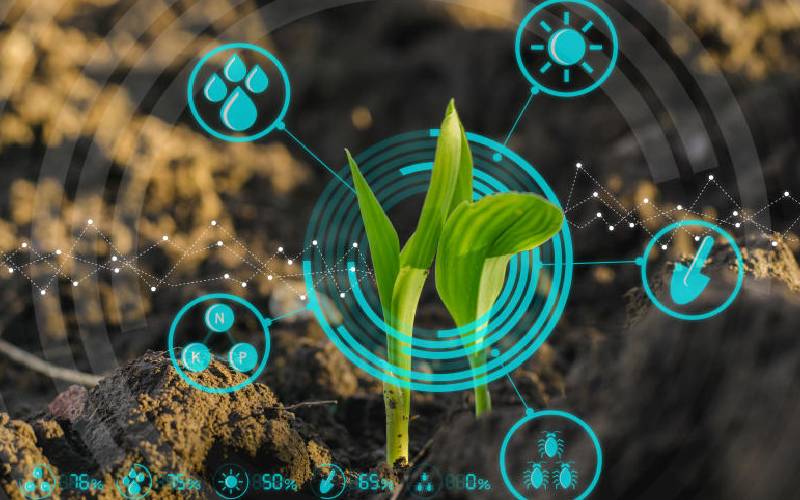
In Sub-Saharan Africa, maize, sorghum, and millets are some of the main crops that support the livelihoods and well-being of small-scale farmers.
However, their production is affected by insect pests such as stemborers and fall armyworms, parasitic weeds, and poor soil fertility.
To curb this, push-pull technology is one of the strategies that has been used to overcome these constraints in Western Kenya.
Jomo Kenyatta University of Agriculture and Technology in collaboration with 17 other partners with the funding of the European Union is spearheading the Upscaling the benefits of push-pull technology for Sustainable agriCulturAL intensification in East Africa (UPSCALE).
UPSCALE is a five-year project ending in 2025 that aims to scale up the scope and applicability of push-pull technology from individual small plots to whole landscapes and from cereal to other important crops and cultivation systems.
“Push-pull was developed by ICIPE and partners and involves intercropping cereals such as maize, sorghum, or millets with a repellent plant-like desmodium which repels stemborers from the target food crop. An attractant trap plant, such as Napier grass is also grown around the border of the intercrop with the purpose of attracting and trapping the pests,” explains Dr. Shem Kuyah, the project lead researcher at JKUAT.
According to Dr. Kuyah, the project will enable targeted implementation and prediction of push–pull’s effectiveness when the technology is brought beyond its limitation to the next level.
The JKUAT wing of the project is working with farmers from Kisumu, Siaya, and Vihiga counties to identify sustainable intensification practices that can be applied to push-pull and to test the effectiveness of push-pull under selected sustainable intensification practices.
Having carried out focus group discussions with about 90 farmers in the three counties, Dr. Kuyah says, “We are exploring the options to expand the use of push-pull for sustainable intensification in crops and agricultural systems outside cereals, and further intensify the technology through the incorporation of nutritious and high-value crops.”
To increase yields for small-scale farmers, the project seeks to; introduce the pigeon pea which is a high-value, nutritious legume that enhances soil fertility; and introduce agroforestry farming, a practice that integrates trees and shrubs into agricultural systems.
“Agroforestry improves organic matter in the soil, reduces the amount of nutrient loss allowing farmers to maximize the productivity of their crops on the same amount of land,” attest Dr. Kuyah who has a Doctorate in Plant Science.
Although the adoption of the push-pull technology is relatively slow in the counties probably due to labour intensity, the farmers that have adopted it have praised the technology.
According to Nicholas Malalu, a farmer from Vihiga County, the technology has offered him a win-win situation through higher yields and avoidance of chemical pesticides.
“I started using push-pull in 2017 and I have never looked back. My production increased without me looking for an extra parcel of land to do my farming and my soil fertility has greatly improved,” said, Malalu.
In a bid to encourage farmers to adopt the practice, Mr. Malalu volunteered his farm and it is being used by JKUAT as a demonstration farm on further intensification of push-pull technology.
As much as he has received the necessary support from partners such as JKUAT and other like-minded organisations, he called upon the government to enhance the agricultural extension services offered to farmers.
Ann Angokho said, she wished she had gotten the gospel of push-pull technology much early in her agricultural venture. She said she was introduced to the practice by a friend in 2020.
“Last year, my maize was ravaged by pests especially the stemborers and fall armyworms to a point I almost gave up on farming. This planting season, I introduced push-pull in my farm and the pests have disappeared. In addition, my soil looks fertile and I expect an increase in production when I harvest,” said an elated Ms. Angokho.
Having attended the focus group discussions organised by JKUAT, Ms. Angokho appreciated the knowledge being shared saying it will inevitably enhance their agricultural productivity hence improve their livelihoods.
Mary Omollo, a farmer from Maseno, said being introduced to push-pull technology has changed the agricultural practice on her farm and has unquestionably improved her yields over the years.
“After realising the benefit of this technology, I have been on the forefront encouraging my fellow farmers in this region to adopt push-pull for the betterment of their lives through agriculture. Even my own son has passionately delved into agriculture due to the production and is encouraging his fellow youth to join him,” said Mrs. Omollo.
Ms. Sylvia Imbuhila, a JKUAT PhD candidate in the project, said intensifying push-pull technology is likely to help farmers raise additional income and contribute to national food security and nutrition.
Want to get latest farming tips and videos?
Join Us
 The Standard Group Plc is a multi-media organization
with investments in media platforms spanning newspaper print operations,
television, radio broadcasting, digital and online services. The Standard Group
is recognized as a leading multi-media house in Kenya with a key influence in
matters of national and international interest.
The Standard Group Plc is a multi-media organization
with investments in media platforms spanning newspaper print operations,
television, radio broadcasting, digital and online services. The Standard Group
is recognized as a leading multi-media house in Kenya with a key influence in
matters of national and international interest.
 The Standard Group Plc is a multi-media organization
with investments in media platforms spanning newspaper print operations,
television, radio broadcasting, digital and online services. The Standard Group
is recognized as a leading multi-media house in Kenya with a key influence in
matters of national and international interest.
The Standard Group Plc is a multi-media organization
with investments in media platforms spanning newspaper print operations,
television, radio broadcasting, digital and online services. The Standard Group
is recognized as a leading multi-media house in Kenya with a key influence in
matters of national and international interest.



